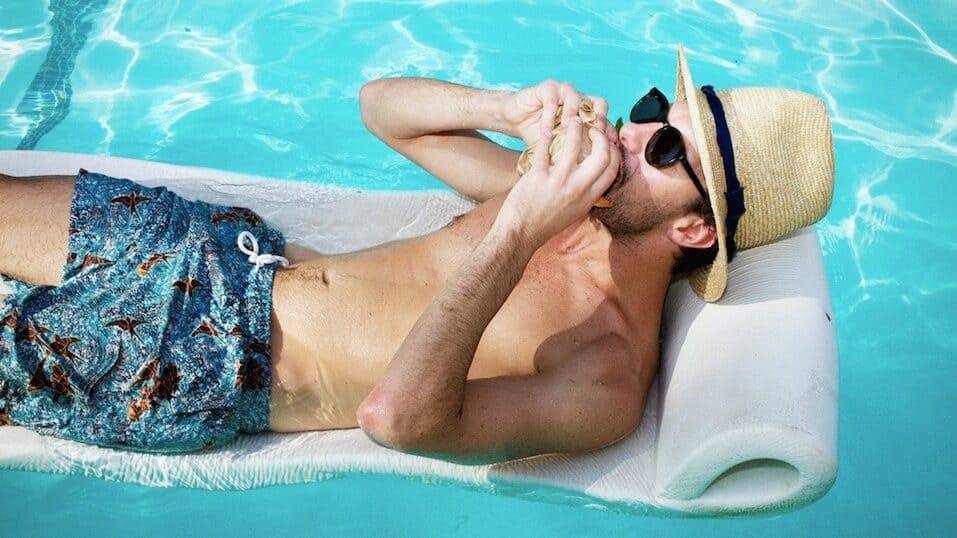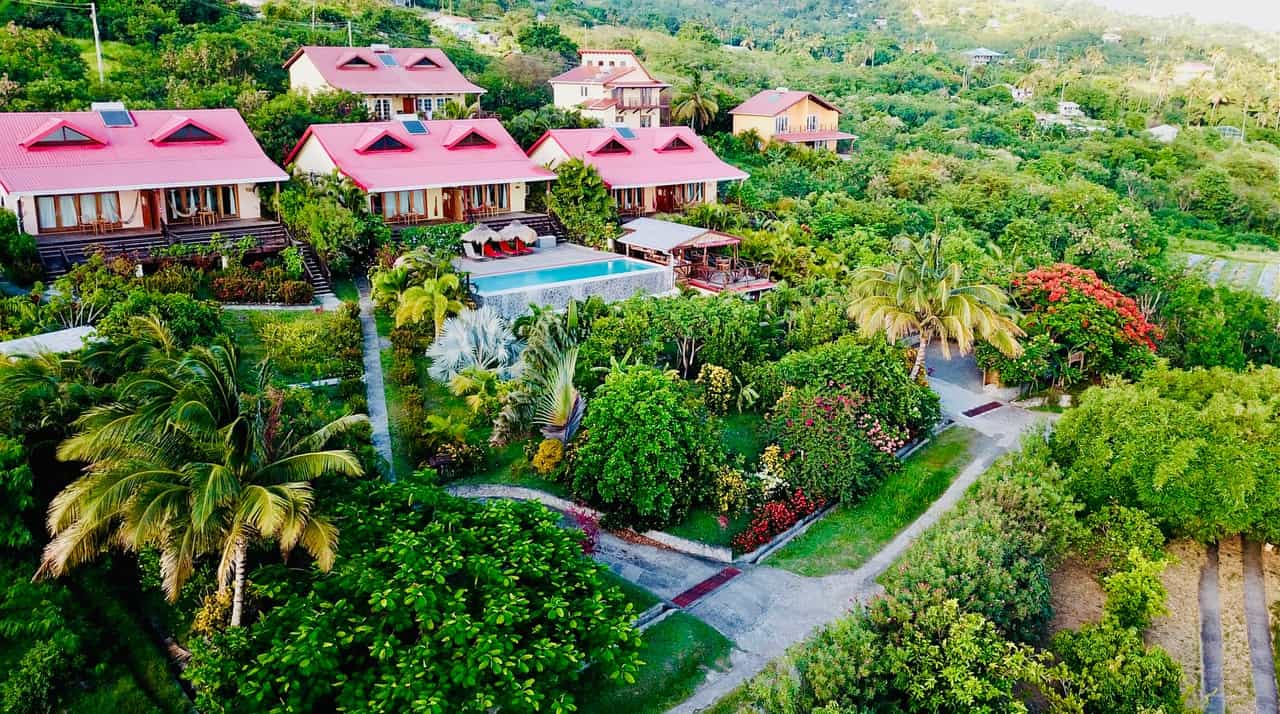“There is nothing more inspiring than people that love what they do and are damn good at it.” Joshua Katz, Proper Hospitality
As Creative Director, Joshua Katz is responsible for developing, managing and growing the Proper Hospitality brands. He oversees all creative concepts and partnerships across multiple categories and deploys them throughout the company’s various properties. He also leads Proper Hospitality’s marketing and communications efforts. Prior to joining Proper Hospitality, Joshua held global marketing and creative leadership roles at Levi Strauss & Company and Quiksilver Inc. and served as a consultant for lifestyle brands including Reebok, Ben Sherman, Puma and Dreamworks Records. At the moment, his favourite things (in no particularly order) are: Dancing, popcorn, popsicles, pool parties, Japanese socks, Thanksgiving, parents, making music, furniture, weddings and crisp white Oxford shirts.
THC: What inspires you and why?
JK: I am extremely fortunate to be able to work with all different types of people, from every imaginable cultural sphere, who are at the very top of their game. In this era of infinite and unlimited access to information and visual stimuli, first-hand knowledge and personal experience seems to be what truly sets people apart. Although I can be intrigued by an ad in a magazine, a mind blowing performance, or a well constructed sentence, I get most of my inspiration from people who have been doing their thing for a long time and have truly mastered their craft. I love watching an experienced photographer fine tune their equipment and make that subtle tweak to their subject matter – the little things that make the big difference. I love hearing the excitement in a programmer’s voice as they explain the nuances of a software workaround. I love standing back and watching a whole crew of skilled craftsman working together on a construction site. I love watching my partners put together intricate business deals with an almost poetic grace and precision. And everyday I am remind of how little I know (but how much I still get to learn!) when I call my mentors, mostly other creative directors that I have worked with in the past, to ask for advice. There is nothing more inspiring than people that love what they do and are damn good at it.
THC: How did you get into your business?
JK: I have always loved hotels, and had certainly stayed in a lot of them throughout my career in the fashion business. But I had never worked in one. I linked up with my partners, the creators of the Viceroy Hotel Group, back in 2012 when they bought an amazing historic hotel building on 7th and Market in San Francisco. I was working for Levi’s at the time and began consulting with them on the concept for the hotel. I guess my contribution at the time was that I didn’t in fact come from the business of hotels and instead had a background in product design, branding, marketing, cultural programming, collaborations and innovation strategy at big lifestyle brands. These were a lot of the things that we wanted to be at the centre of the new concept – so my experience proved to be relevant. Our fledgling company with one hotel in San Francisco eventually became Proper Hospitality, a new hotel management company with additional Proper Hotels slated for Hollywood, Downtown LA, Austin and elsewhere – as well as the Avalon Brand which includes two charming boutique properties in Beverly Hills and Palm Springs.
THC: What are you working on right now?
JK: In any given day, I could be working on projects related to our two Avalon Hotels as well as the Proper Hotels and Residences in Hollywood, San Francisco, Downtown LA and Austin – which are all in varying stages of development and construction. The breadth of things can be a bit scary at times – everything from opening restaurants and deploying new technology platforms to photoshoots, websites, advertising, uniforms, music, events, etc. Today I am working with one of my favourite photographers, Martyn Thompson to take the first pictures of our Downtown LA Proper hotel room – then I am flying to Palm Springs for the launch of Surf Air’s new route, which we are hosting at the Avalon. Somewhere in the middle of all of that, I will be helping to hunt out new chefs for the restaurants in San Francisco Proper and maybe concepting a programming calendar for Hollywood Proper, which opens in April 2016.
THC: How do you see your space evolving?
JK: It’s been fascinating to enter into the space at what appears to be an inflection point in hotels and the business of hospitality in general. New trends in travel, the rise of foodie culture, changing attitudes about community and place-making, as well as significant innovations in technology have all contributed to the emergence of “lifestyle hotels” (whatever that means!) and an incredible variety of compelling new concepts of all shapes and sizes. It’s nice to see that, in some ways, the more interesting of today’s lifestyle hotels are functioning like modern versions of the grand hotels of the past – not just places to stay but true anchors of their local communities and showcases for what their cities have to offer. Great design and personalised service will always be paramount…but there is a massive opportunity, and almost an obligation, for hotels to move beyond what may have worked over the past few decades. Also, it goes without saying, that the rise of the sharing economy has challenged the traditional hotel model – forcing hotelier’s to really double down on the the types of things that only a great hotel can offer.
THC: Who’s your hero or icon?
JK: Charles and Ray Eames definitely make it high on the list. It goes without saying that they were prolific creators – making a mark in not just architecture and furniture but also graphic design, fine art and film. If you haven’t seen Powers of Ten, you are missing out on something special. For me, it’s less about the aesthetic that is associated with them and more about their philosophy of design and approach to work. Their famous criteria for taking on new projects was something like: “Does it interest and intrigue us? Can we make it better? Will we have “serious fun” doing it?”. Sure, they were ultimately successful from a financial point of view but for them it was really about learning, exploring and making things (and making things better). You can tell that they had “serious fun” fun together, too. I love the idea of couples, families and friends working together. It’s not for everyone but if you can manage to create something with the people you love, it’s just that more sweeter when you step back to appreciate it.
THC: Where’s your favourite spot around the world?
JK: My parent’s house. Norman and Pepita Katz still live in the house that my brothers and I grew up in. It will always be my favourite place to return to. And it’s not just because they have a swimming pool and my mother makes me sandwiches. With all of the travel I do, coming back to my parent’s house is comforting. It makes me feel grounded. And when my whole family is home, it has a great energy. My parents are still the smartest people I have ever met and they never stop exploring. My two older brothers are also incredibly bright, each one talented and accomplished in their own way. When you get everyone together in the place it all began, it’s pure magic. I would be lying if I didn’t also mention that I love the Daikanyama neighborhood in Tokyo, Berlin in the summertime, and Bolinas, California on a cloudy Northern California day.
THC: What’s your favourite injection of culture into a brand?
JK: In general, I like to see brands provoke the cultural dialogue instead of just coopting or reflecting it. That’s not to say that I don’t respect apparel brands that put fine art on t-shirts. In fact, I think that’s awesome in its simplicity – especially if the artwork is given new/different/more meaning in mass production or distribution. But what really catches my attention is when a brand takes a risk by actually engaging with the culture of the community that they serve. Think about American Apparel advocating for the rights of its workers. Not sexy, in the traditional sense, but very compelling. Think about multinational brands creating work and exhibition spaces for artists and musicians to learn, create and share. They definitely benefit from the gesture of goodwill, but at the same time they are creating an undeniably good resources for the community that contribute to the culture at large. Or you can think about a skate brand building skate parks for underserved communities and making original documentary content to share the story and inspire others. In each of these examples, the brand’s are clearly committing to the culture instead of just exploiting it. The sincerity of these actions, regardless of the business motivation, is something that all brands and business should learn from.









